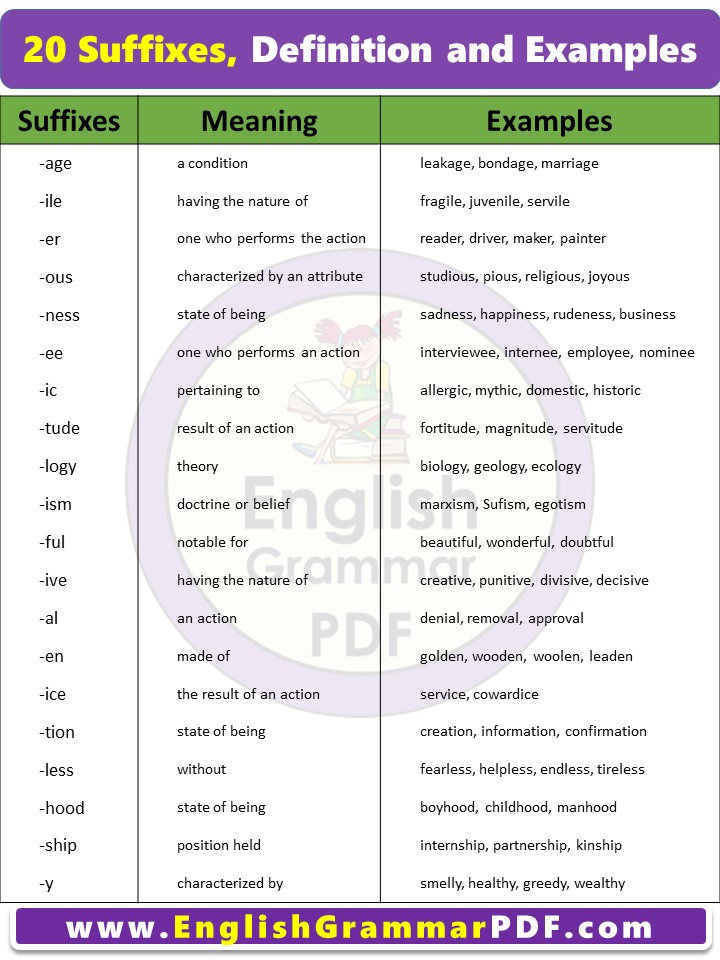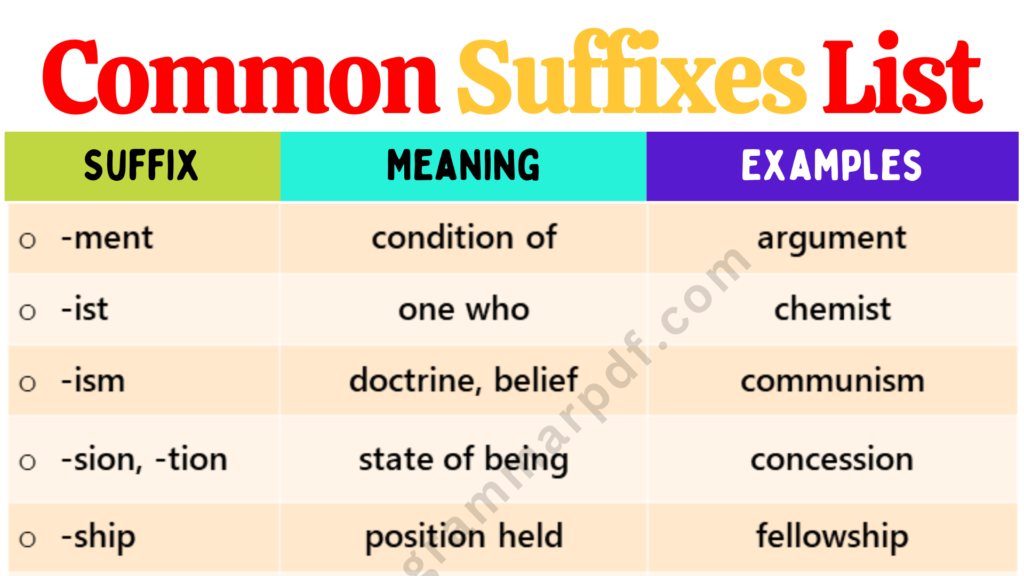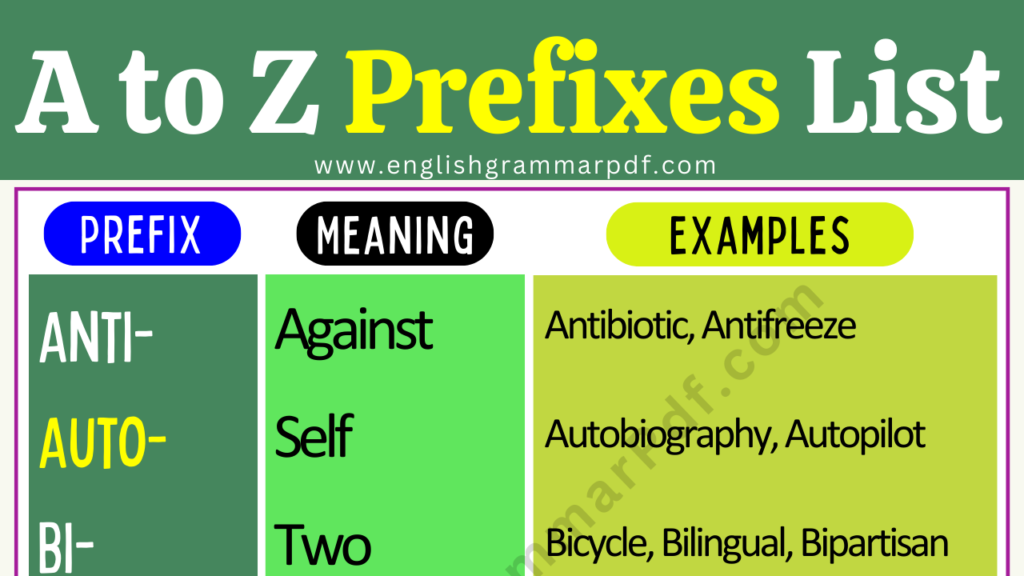Suffixes are little tails at the end of words that change their meaning or make a new word. It’s like adding a tiny piece to a puzzle to complete the picture. In English, suffixes help us understand more about what a word is doing. For example, adding “ful” to “joy” makes “joyful,” which means full of joy.
Our journey today will explore 20 exciting suffixes that can help you play with words and make your English even better. Let’s dive in and see how these tiny tails can make a big difference in the words we use every day!
What are suffixes?
The letters or words that are added at the end of words to form new words are known as suffixes. For examples: -age/ -tude/ -er etc. Here 20 examples of suffixes are explained with definitions and examples.
| -age | a condition | leakage, bondage, marriage |
| -ile | having the nature of | fragile, juvenile, servile |
| -er | one who performs the action | reader, driver, maker, painter |
| -ous | characterized by an attribute | studious, pious, religious, joyous |
| -ness | state of being | sadness, happiness, rudeness, business |
| -ee | one who performs an action | interviewee, internee, employee, nominee |
| -ic | pertaining to | allergic, mythic, domestic, historic |
| -tude | result of an action | fortitude, magnitude, servitude |
| -logy | theory | biology, geology, ecology |
| -ism | doctrine or belief | marxism, Sufism, egotism |
| -ful | notable for | beautiful, wonderful, doubtful |
| -ive | having the nature of | creative, punitive, divisive, decisive |
| -al | an action | denial, removal, approval |
| -en | made of | golden, wooden, woolen, leaden |
| -ice | the result of an action | service, cowardice |
| -tion | state of being | creation, information, confirmation |
| -less | without | fearless, helpless, endless, tireless |
| -hood | state of being | boyhood, childhood, manhood |
| -ship | position held | internship, partnership, kinship |
| -y | characterized by | smelly, healthy, greedy, wealthy |
Explore More: 100 Common Suffixes

You can Download PDF of this Lesson.


